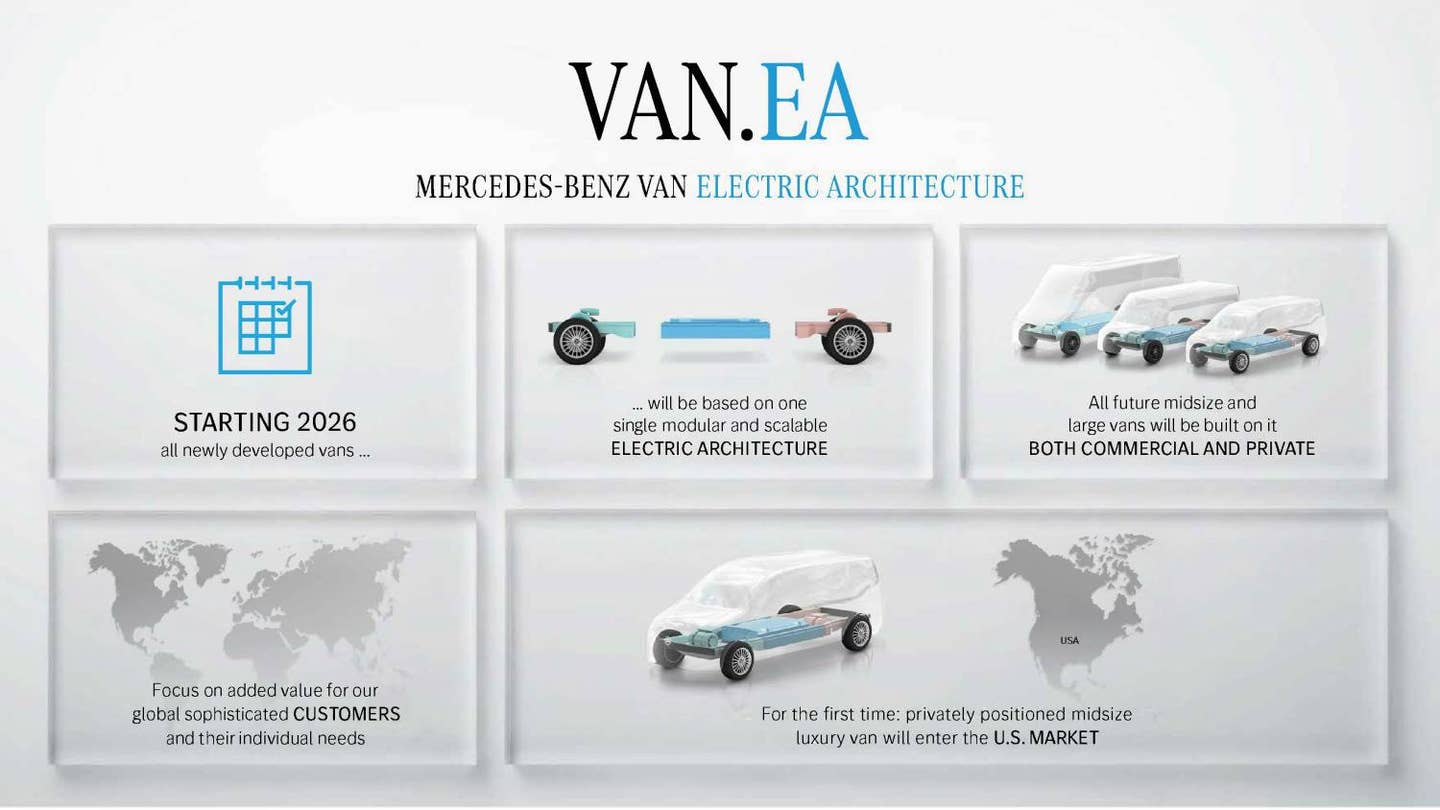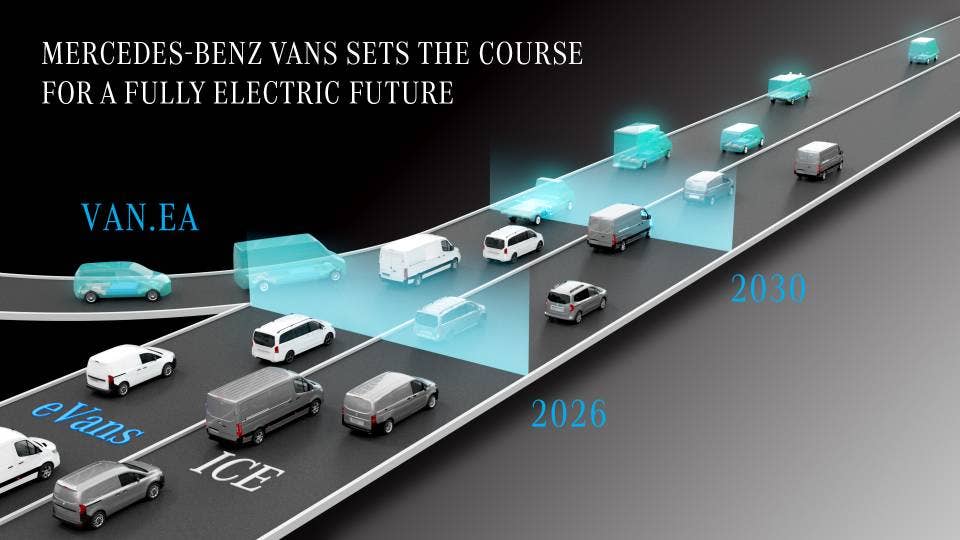Automakers are vocal about their aspirations to fill the roads with electric vehicles. As the popularity of battery power grows, cars, SUVs, and trucks take the spotlight. Now, Mercedes-Benz has added “vans” to this expanding lineup.
Recently, Mercedes-Benz announced that its new advanced van architecture, aptly named VAN.EA, will introduce electrified passenger vans to the American market. It doesn’t end there; this architecture will also pave the way for new factory-made electric Recreational Vehicles by Mercedes.

via Mercedes-Benz
Mercedes-Benz will introduce an electric luxury passenger van for the first time in the United States. This new van will be constructed on the manufacturer’s newly designed VAN.EA framework, set to support all of Mercedes’ upcoming midsize and large vans from 2026 onward.
VAN.EA is a modular system consisting of three distinct “sections” that form the complete vehicle. The front section remains consistent across all vehicles built on the platform, housing the powertrain and front axle. The central section determines the vehicle’s length and hosts the high-voltage battery pack. Lastly, the rear section offers a powertrain for all-wheel-drive or can be without it for front-wheel-drive applications only.
Mercedes is dividing the platform into two sub-platforms: VAN.EA-C and VAN.EA-P, where “C” stands for “Commercial” and “P” for “Private.” Essentially, all privately positioned luxury vans will fall under the VAN.EA-P classification, catering to lifestyle-oriented clientele, mobile offices, or even VIP shuttles. The manufacturer aims for vehicles on this platform to achieve a range of “well over” 310 miles, without specifying the testing cycle used for this estimation.
Besides luxury passenger vans, Mercedes-Benz will adapt its framework to suit electric factory-made Recreational Vehicles under the registration of VAN.EA-C. While Mercedes hasn’t confirmed the availability of factory-made RVs in the U.S., the potential for a camper is promising, especially since Volkswagen’s R&D chief Kai Gruenitz affirmed a camper version of the ID Buzz. Commercial users can also anticipate using the platform for courier services, ambulances, or grocery delivery vehicles.

via Mercedes-Benz
This initiative with VAN.EA is solely a Mercedes venture, distinct from the partnership with Rivian last year. Notably, neither the large nor midsize vans will be manufactured at the shared facility in Jawor, Poland. Instead, large vans will be produced in Düsseldorf, Germany, while midsize vans will roll off the assembly line in Vitoria, Spain. The Sprinter plant in Ludwigsfelde, Germany, will evolve into a specialized center for electric van customizations.
Expanding its electric vehicle lineup with battery-powered vans in the U.S. positions Mercedes to achieve its goal of 50% EV sales by the end of the decade. Furthermore, Mercedes outlines plans to introduce Level 4 autonomous driving capabilities in its vans by 2030, potentially unlocking new business opportunities for the company and its customers.
If you have any tips or queries for the author, feel free to reach out directly at: rob@thedrive.com
